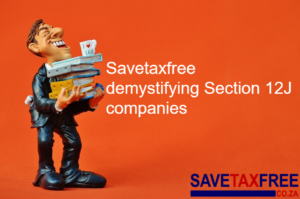Budgeting: Send help!
Related Articles
By Leya Mall | 24 April 2019

Welcome back readers, to the Tax-Saving South African, where I walk with you in your personal journey through a range of financial themes
Being young, wild and free isn’t as easy and financially fun as I thought. It can actually have you feeling middle-aged, tame and trapped. If you are budgeting within your limits every month – congratulations! You’ve passed this test called adulthood.
Every column I’ve written looks at the wonderful world of spending our moolah strategically. Many focused on what I thought were “must haves”, or at least on what things young workers would typically want to pay for. But as soon as we add them together into a budget structure it becomes depressingly clear that some sacrifices are required – particularly as you still have to save/invest on top of purchasing some essentials. Hahahahahahaha – I don’t remember that module in school or university.
To make this situation a little positive let’s put a budget together to see how much each expense I’ve written about in previous columns will cost us overall and how we could actually manage it. And no… you don’t need to go to a loan shark and worry about your knee caps because you have defaulted on your payments.
Tom, 27, works in Cape Town and earns R21,300 a month as a fintech developer. The table below reflects Tom’s monthly budget – including all the financial deductions/expenses we have discussed in the past year.
| Tom’s ideal monthly budget
|
||
| Gross income | R 21,300 | |
| Deductions (from salary slip) | PAYE tax | R 3,047.33
|
| UIF | R148.72
|
|
| Retirement annuity | R3,195
|
|
| Medical aid | R 1,285
|
|
| Take-home pay | R13,623.95 | |
| Monthly expenses | Home loan | R5,050
|
| Car instalment | R 3,879
|
|
| Groceries | R1,712
|
|
| Petrol | R1,000
|
|
| Cellphone | R300
|
|
| Wi-fi | R500
|
|
| Entertainment | R1,149
|
|
| Tax-free savings account | R621.96
|
|
| Upcoming holiday budget contribution | R2,000
|
|
| Total expenses | R16,211.96
|
|
| Net income (ouch) | -R2,500.01
|
|
Before I explain the figures for some of the expenses, there’s that nasty problem of overspending by R2,500.01 month: Tom won’t have to make that appointment with a loan shark just yet because I will list some suggestions to make the figure at little more palatable. Let’s first look at how the costs were calculated.
Calculating the pay as you earn amount (PAYE) based on SARS’ tables can make your head spin, so use the free TaxTim tax calculator to help you determine your tax. The retirement annuity (RA) expense is calculated on the recommended 15% of the overall salary. The allocated TFSA amount is taken partly from the tax saving Tom gets because he pays towards an RA. The home loan amount is based on Tom sharing it with a partner as explained in the Home-work article. The car instalment figure is under the assumption that Tom was sensible and bought that cute KIA Picanto instead of the Ferrari 458 Spider. The petrol figure was a little trickier because the amount depends on: the distance between work and home, how new the car is and how big the engine is. I based it on the KIA, living in Ferndale and working in Sandton. The grocery figure is from my cooking episode, which showed that buying fast food as an individual can be cheaper than cooking.
Even though Tom is short of R2,500.01 a month, there are options to eliminate the deficit. Obviously if you receive a bonus it will overcome the problem, but most employees can’t bank on that so other remedies are required.
The first option is to knock out the holiday. I know, I know, what will you do with all the leave days you’ve accumulated? But cutting out the holiday knocks the deficit down considerably.
Another option is either to buy a cheaper car which also uses less petrol – but a more dramatic option is to sell the car and negotiate the perils of our public transportation system. Tom lives with a partner and has the option of sharing. Another expense that can be shared is the wi-fi amount, since they both pay a share of the house. Even though we figured out entertainment is a MUST, we’ll have to knock it down a little just to break even. Note that for the above options, it helps to share costs. If you don’t have a partner/roommate (keep looking) try find a person in your suburb who works near you.
The absolute last resort is to take out the dreaded personal loan. In brief, a personal loan is money borrowed from a bank/financial institution and you pay back in fixed monthly payments, or instalments, usually with WHOPPING interest charges.
To make matters worse, they trap you with something that sounds wonderfully enticing but can be devastating to your long-term financial security: the revolving credit facility. As you pay down the balance, you are allowed to draw out again to near the limit – and that’s how it traps you. Life happens and you always need a little extra for a little something, and the temptation to draw out from the loan facility is overwhelming. But by doing so you could effectively continue paying it off until the day you die. This sounds dramatic but it happens. Moral of the story? AVOID IF POSSIBLE!
Speaking of which, did you know that there is credit insurance for such loans – and your bond and car loan too? You pay insurance so that in case of death, disability, critical illness or retrenchment, the loan still gets repaid. These banks clearly don’t love us – they always get their pound of flesh, even if you die.
With the options I’ve provided for Tom to decrease his monthly expenses, below is a budget that breaks even.
| Reality bites: Tom’s actual monthly budget
|
||
| Gross income | R 21,300
|
|
| Deductions (from salary slip) | PAYE tax | R 3,047.33
|
| UIF | R148.72
|
|
| Retirement annuity | R3,195
|
|
| Medical aid | R 1,285
|
|
| Take-home pay | R13,623.95
|
|
| Monthly expenses | Home loan | R5,050
|
| Car instalment | R 3,879
|
|
| Groceries | R1,712
|
|
| Petrol | R700
|
|
| Cellphone | R300
|
|
| Wi-fi | R250
|
|
| Entertainment | R1,110.40
|
|
| Tax-free savings account | R621.96
|
|
| Total expenses | R13,623.95
|
|
| Net income | R0 | |
I may not have found you a way to afford all of life’s luxuries in the second budget table. However, Tom is now breaking even and still has his car.
Look on the bright side: we have each other.
PS: If your budget is just “breaking even”, it is a good idea to trade down on your new car (ie, sell the new one and buy an older, cheaper one) so that you always have an emergency fund.
Continue following this series to become a wiser tax-saving South African!






